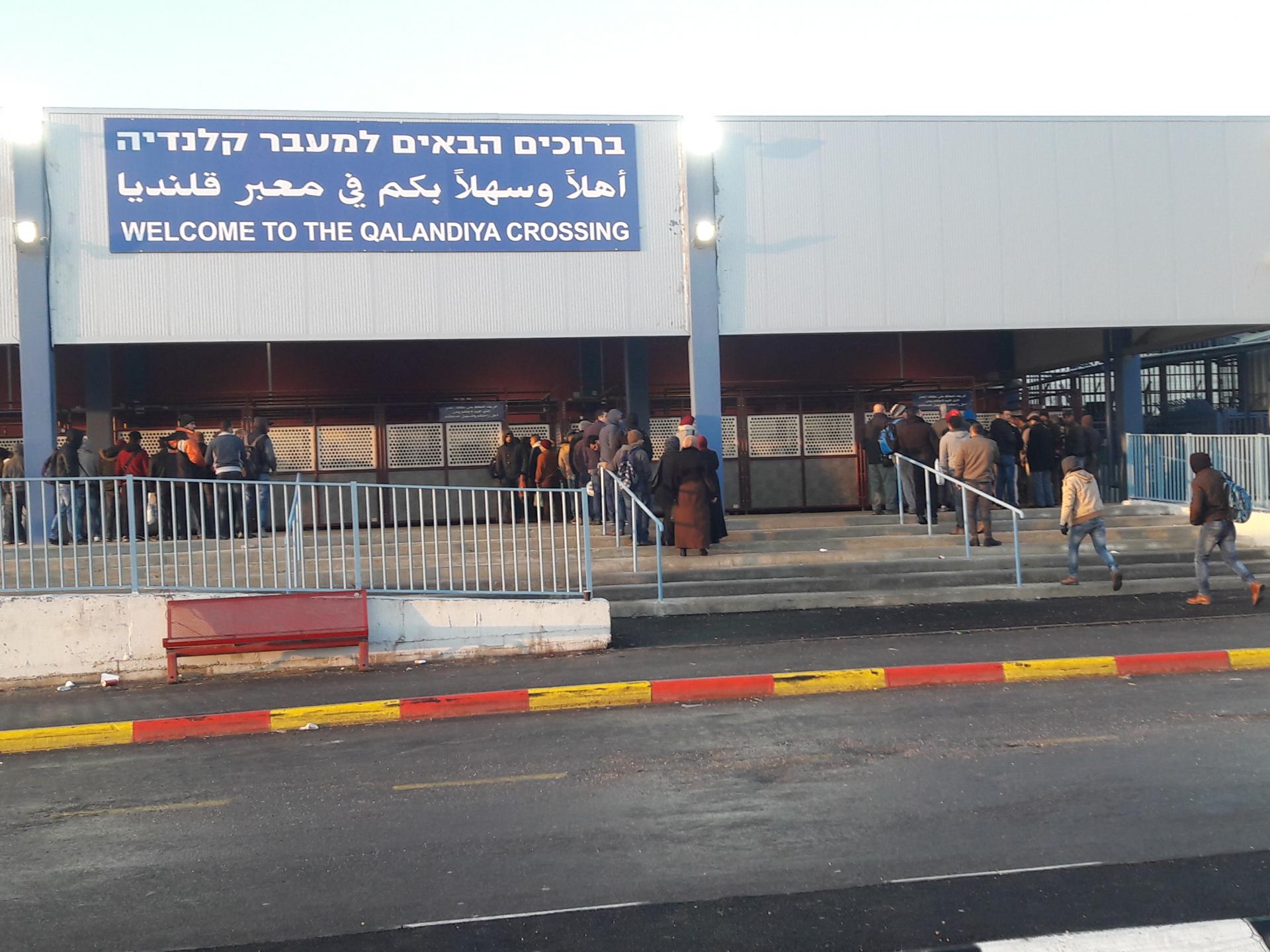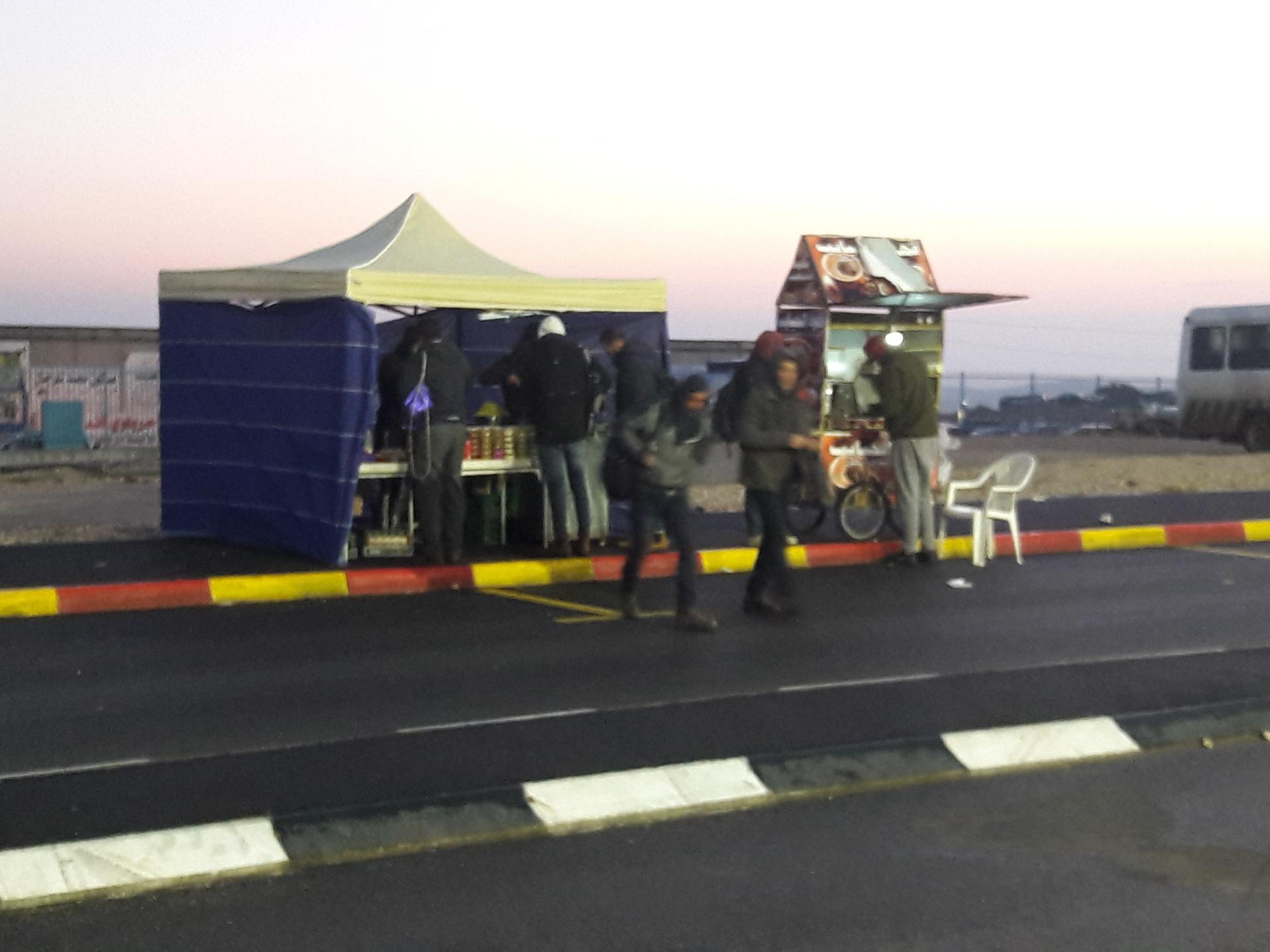Qalandiya. Queues forming also in the new checkpoint

Problems in Paradise??? Queues forming also in the new checkpoint.
Fetching our visitor from Tantur, we found that area full of people who had arrived from Bethlehem and were streaming towards their transport. All the road to the entrance to Beit Tsafafa (opposite Tantur) was full of pedestrians, cars and buses. Our visitor says he and his friends often pass the checkpoint on their way back from lessons at Bethlehem University, but we recommended that they should visit also this early hour.
05.30. The way from the parking lot to the checkpoint was covered in litter. We were pleased to see cleaners at work on our way back – but it is only dirt on the pavement that is cleared, not that which has collected behind the low stone wall.
Many people exit the checkpoint. We meet Bashir who, with almost 50 other people, had appealed to court with our help to have their permit refusals cancelled. The appeal was successful. In addition, as a result of our efforts with the help of lawyer Blanck, more than 100 people of his village had their permit refusals cancelled. Bashir sends his greetings to Sylvia whose incessant efforts have led to this success. For his part, although his permit refusal was cancelled, he has lost his job … now he has a permit for special needs and is looking for a permanent job.
On the way to the Palestinian side, we pass the old checkpoint and explain to our visitor the previous situation. At the new entrance we meet the beigel seller. He is not allowed under the shelter. He stands on the pavement and on rainy days he cannot work. Across the road the falafel seller has set up a stall under a folding cover, and there is a coffee kiosk. Later these are also banished…

We took our visitor towards Qalandiya refugee camp, showing him the traffic checkpoint and the graffiti on the wall. On the way back, we noticed thick smoke from the direction of A-Rram,but people did not seem to know the cause. While we were drinking tea at the kiosk, the policeman M. approached the stalls and told the owners that tomorrow they would have to be clear of the place altogether. Where should they stand? What does he care?- outside. How should they earn a living? It doesn’t interest him. In addition he tells the beigel seller that he must leave the checkpoint area (all the area of the former parking lot). The owners of the falafel stand were told to remove their vehicle which was parked next to the building. Tomorrow, he threatened, if they returned he would summon an inspector who would report against them and he himself would make a police report.
Meanwhile we noticed that suddenly queues had formed at the entrances to the new checkpoint and already reached the steps beyond the covering shelter. We were told that there was an electronic problem and so many electronic stations were not operating. People, who had quickly become accustomed to the recent improvements, started complaining and began losing patience. They told us that this is not the first time. Fortunately, after a short while the problem was apparently solved and the lines shrank.
At about 6.30 there were no longer queues outside the three entrances to the slalom passages, and so we joined one. As we reached the turnstile at the end of the slalom we saw that behind us lines were once again reaching outside, but we did not go back. Inside there are 3 passages, through the turnstiles, to positions with screening machines. Today we noticed that there was also an upper floor. There seems to be a stand there where the policeman M. was standing, directing people to relatively empty places to queue. When he saw a family with a child, he called to them to come aside where a door was opened – so apparently there is a Humanitarian passage. At any rate there is attention to the state of the queues and an attempt to improve matters. Altogether it took us 20 minutes to pass, which we had not expected.
